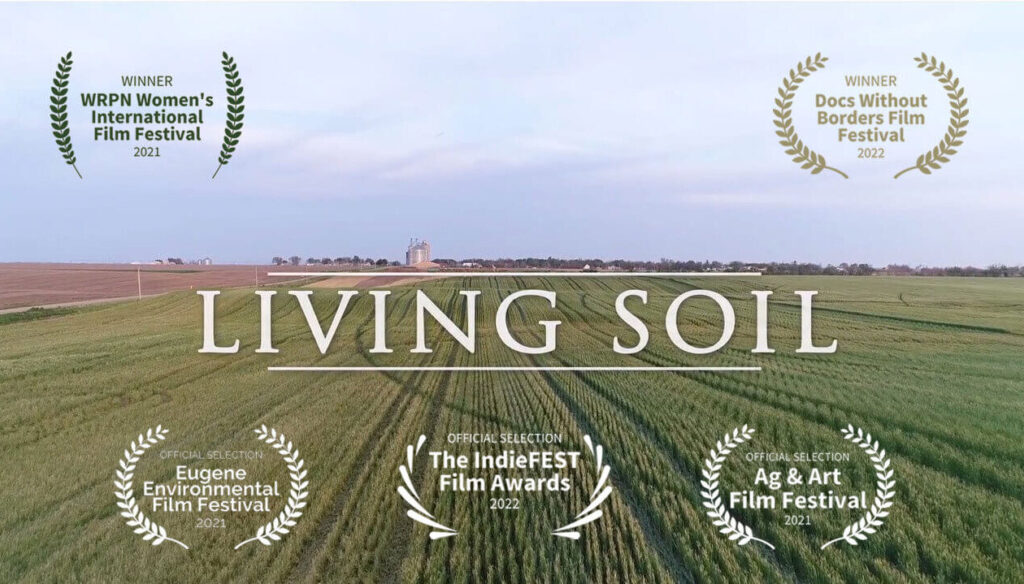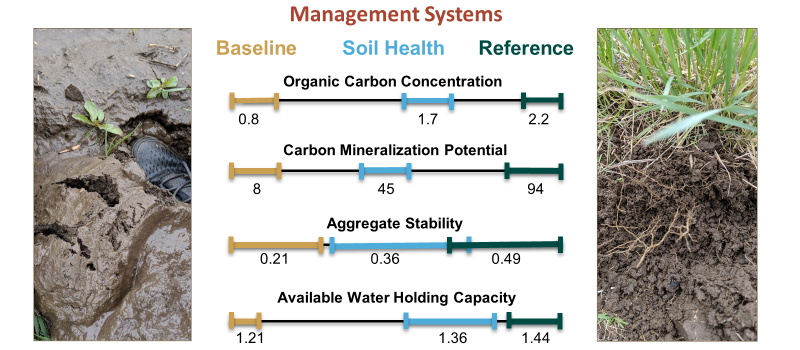April 2, 2024
Ten new members representing diverse sectors of agriculture and sustainability have joined the Board of Directors of the Soil Health Institute, ushering in the organization’s next phase of enhancing life by enriching soil.
SHI welcomes the following directors to the board effective April 1:
- James H. Baxter, IV, Owner and Operator, Baxter Farms, Delaware
- Meredith Ellis, Rancher, G Bar C Ranch, Texas
- Devon Leahy, Global Head of Sustainability, Ralph Lauren Corporation
- Marquitrice Mangham, Farmer and CEO of In Her Shoes, Mississippi
- Rob Myers, Ph.D., Director of the University of Missouri Center for Regenerative Agriculture
- LaKisha Odom, Ph.D., Scientific Program Director for Soil Health, Foundation for Food & Agriculture Research
- Megan Rock, Chief Sustainability Officer, CHS
- Karen A. Scanlon, Executive Vice President, Environmental Stewardship, Dairy Management Inc. and Innovation Center for U.S. Dairy
- Ryan Sirolli, Global Environmental Markets Insets Lead, Cargill
- Andrew Smith, Ph.D., Chief Scientific Officer, Rodale Institute
The new directors join three continuing members: Board Chair Diana Jerkins, Ph.D., Past Research Director, Organic Farming Research Foundation; V. Larkin Martin of Martin Farm, Alabama; and Jason Weller, Global Chief Sustainability Officer, JBS.
The founding board, many of whom have served since SHI’s creation in 2015, recommended the change to better position the nonprofit for rapidly expanding opportunities to bring regenerative agriculture’s benefits to farmers and the environment. With projects and partnerships throughout North America and the world, SHI advances the science of soil health and the adoption of soil health management systems. These regenerative systems can increase agricultural productivity and build climate resilience, improving water quality and ecosystem health.
The new directors’ expertise will amplify SHI’s reach, said founding director and former Board Chair Bill Buckner, past President and CEO of the Samuel Roberts Noble Foundation, which provided seed funding to establish SHI.
“The incoming board reflects the new, wider landscape of opportunities in soil health. Their guidance will position the Soil Health Institute for even greater impact,” Buckner said.
SHI President and CEO Wayne Honeycutt, Ph.D., expressed gratitude for the founding board’s expertise.
“They set us up for success – including guiding us to engage this diverse, dynamic group of new directors to further our mission to safeguard and enhance the vitality and productivity of soils.” For full bios for the Soil Health Institute’s Board of Directors, visit SHI’s governance page.
About the Soil Health Institute
The Soil Health Institute is a global non-profit with a mission of safeguarding and enhancing the vitality and productivity of soils through scientific research and advancement. Our vision is a world where farmers and ranchers grow quality food, fiber, and fuel using soil health systems that sustain farms and rural communities, promote a stable climate and clean environment, and improve human health and well-being. The Institute brings together leaders in science and industry to conduct research and empower farmers and landowners to adopt soil health systems that contribute economic and environmental benefits to agriculture and society. Find out more at www.soilhealthinstitute.org or on YouTube, LinkedIn, and Facebook.
Contact:
Alisson Clark
Communications Director, Soil Health Institute
aclark@soilhealthinstitute.org
919-504-2369

